The story was told of a man whose phone rang at a church service and the pastor rebuked him from the pulpit. The wife and children were so embarrassed that they distanced themselves from him. In anger, the man stormed out of the church and walked into a nearby restaurant; where he ordered a bottle of beer. Just as he was about pouring it into a glass cup, the bottle fell and its content spilled on people around. Sensing danger, he knelt, but the people embraced him, ordered another bottle and invited him to their corner, making the man wonder if love was found in the beer parlour, and not in the church.
The life of Father Wenceslas Munyeshyaka, a Rwandan priest, is a pure example of the contrast in the above narration. An ordained Catholic priest is expected to toe the just path and also be a source of inspiration to others but Father Munyeshyaka was the exact opposite. Neck deep in atrocities, he was at the heart of one of the worst tragedies on the face of earth. Between April 6 and July 4, 1994, when rebels of the Rwandan Patriotic Front took Kigali, capital of Rwanda, in the widely reported genocide, Father Munyeshaka was vicar of the Parish of the Holy Family Cathedral, Kigali, also known as Sainte Famille Parish. The red brick church was right in the centre of the city. Hundreds of Tutsis took refuge there, hoping to find protection, but many of them did not escape the killers, who surrounded the church and regularly came to take victims. Strangely, the priest’s mother was a Tutsi.
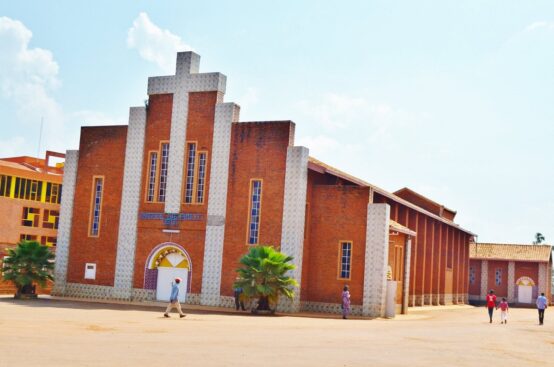
KILLER FATHER
According to reports, Father Munyeshyaka, who fought on the side of Hutus, where his father hailed from, carried a pistol on his belt, even while he was celebrating Mass. The New Times, Rwanda newspaper established after the genocide, gave multiple accounts of survivors at Father Munyeshyaka’s parish.
On April 13, 1994, within the grounds of the Sainte Famille Parish, Father Munyeshyaka reportedly shot dead a young Tutsi. He also killed two young Tutsi, aged 18 and 20. The same day he shot a 22-year-old Tutsi girl.
On June 17, 1994, at the Sainte Famille Parish, Father Munyeshyaka was said to have incited Interahamwe, a Hutu paramilitary organization that was actively involved in the genocide, to kill a Tutsi girl named Hyacinthe Rwangwa, alias Baby.
“I saw Father Munyeshyaka two times in military attire and with a gun,” The New Times quoted Romuald Mukwiye, a survivor at Saint Paul church, was quoted to have said.
On April 24, 1994, at the Saint Paul Pastoral Center in Kigali, Munyeshyaka helped Interahamwe, including Léonard Bagabo, to kidnap seven young Tutsi, including Emmanuel Rukundo, a journalist, Aristarque Batsinduka, a building and public works engineer, and Mazimpaka, a student. Later, their corpses were found.
KIDNAPPED AND KILLED
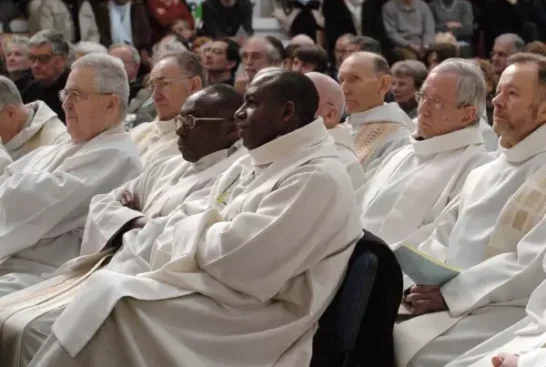
On June 14, 1994, Father Munyeshyaka reportedly helped soldiers search and identify Tutsi who had found refuge at the Saint Paul Pastoral Center in Kigali while knowing that they were on the list of people to be killed.
On this occasion, 60 Tutsi civilians, including Antoine Marie, Zacharie Gasarabwe alias Gasindi, Charles Rutsitsi, Emmanuel Nyarwaya, Diogène Rubaduka, Twaha Sebajura and André Kameya, who had been identified by Munyeshyaka, were kidnapped by the attackers and killed.
On June 14, 1994, at the Centre National de Pastorale Saint Paul, a large attack, composed of Interahamwe, Col Laurent Munyakazi, and Father Munyeshyaka, inspector Mukandutiye Angelina, came and took away between 72 and 80 Tutsi to the Rugenge Sector from where they were taken to be killed.
On the morning of June 15, 1994, journalist André Kameya was said to have gone to see Father Munyeshyaka to ask for his help in fleeing, as he was very much wanted. The Reverend reportedly took him to Odette Nyirabagenzi’s place who was the Councillor of Rugenge Sector where the Interahamwe met and the rest is better imagined.
Hôtel des Mille Collines was a stone throw from Sainte Famille Church. It was a meeting point for the Interahamwe. Among the killers who frequently came to the Hôtel was Father Munyeshyaka.
ROBBED YOUNG GIRLS OF THEIR VIRTUE
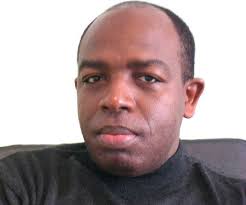
Father Munyeshyaka didn’t just kill, he also robbed young girls of their virtue. He was said to have raped some of the ladies he claimed he was protecting during the genocide. He hid some in his apartment within the church, while others were assaulted on the battle front.
Some rape victims testified against Father Munyeshyaka. He was said to have encouraged Interahamwe to rape a young Tutsi civilian refugee. He also reportedly raped a young girl at the Sainte-Famille Parish who testified against him.
When the city of Kigali was captured and the Tutsi who were held against their will were set free, Father Munyeshyaka and his killer gang fled. But the news of his atrocities spread like wildfire. It became a disturbing issue even for the Catholic Church. In a move to exonerate himself, Father Munyeshyaka and 28 other Rwandan priests signed a document, which was sent to Pope John Paul II, in which they justified the Genocide committed against the Tutsi and placed the responsibility for the killings on the Rwandan Patriotic Front, the movement that ended the genocide.
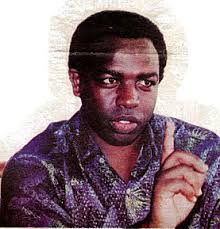
He subsequently fled to France where he became a refugee but was employed as a priest six years later.
Meanwhile, back home, Father Munyeshyaka was convicted of genocide by a Rwandan military court. He was found guilty of rape and of aiding militias in the killing of hundreds of Tutsi refugees at the Holy Family Cathedral, Kigali. He was sentenced in absentia to life in prison.
International Criminal Tribunal for Rwanda (ICTR) issued an arrest warrant against him, which led to his arrest in France on July 20, 2007. He was released by a French Appeals Court two weeks after. A revised indictment was released by the ICTR on 13 August 2007, upon which he was re-arrested by French authorities on 5 September 2007.[6] On 20 November 2007, the ICTR decided to decline jurisdiction over this affair in favour of the French judicial authorities.
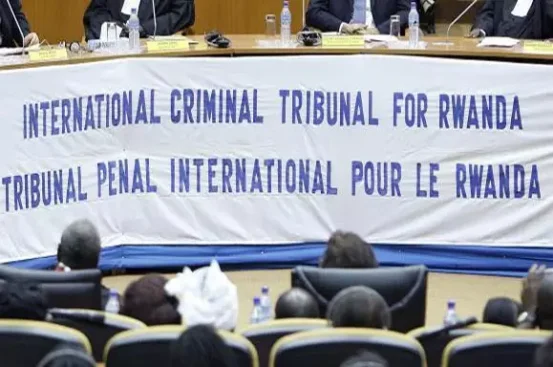
On 20 February 2008, the French authorities agreed to try Father Munyeshkaya in France, but in October 2015, the courts dropped the case because of the quality of evidence. The French government had expressed disappointment that the courts had decided not o progress the case further.
The priest who kept mum during the trial broke his silence after the case was dropped. In an interview with AFP, he said: “My first thought goes to the parishioners of Sainte-Famille, the living and the dead, to whom I dedicated my life. I only regret that human rights groups have ruined my life by supporting false testimonies.”
IS THIS THE END?
Although the genocidal charges had been dropped and Father Munyeshyaka was presumed a free man, at least in France, he still found his way back into controversy. This time, it had to do with breaking the celibacy vow.
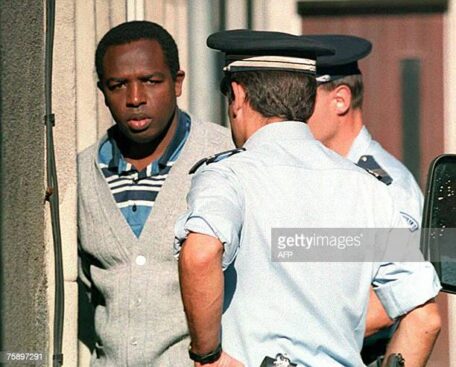
According to The News Times, French judicial authorities that probed him had retrieved a telephone conversation between the Catholic priest and someone believed to be his mistress.
The mistress was identified as Claudine Mukakarara,
The conversation was taken as admission on the part of the priest to have breached the vow of celibacy that binds all Catholic priests.
He was dismissed from priestly duties and prohibited from conferring any sacrament or celebrate them after having admitted that he has sired a son, now 11 years.
Quoting French media, The News Times said the decision was taken after Father Munyeshyaka “registered in the civil status registers of Gisors an acknowledgment of paternity on a son, born in July 2010, from an affair he maintained in Gisors.”
The relationship he enjoyed with the reported mother of his child was traced from transcribed discussions that Father Munyeshyaka had with Mukakarara by telephone in September 2014.
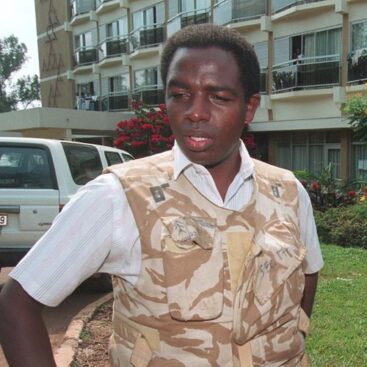
According to the transcript from the conversation that lasted 10 minutes and 22 seconds, Father Munyeshyaka called Mukakarara saying, “Mimi Cherie, Louise just called me, I am moved, she told me that I will have my answer on Tuesday, she even gave me her son who assured me that I will have the answer not later than Tuesday. He is the one who is going to appear in my defence. He is now 39 years old, meaning that he was 19 at the time.”
It is believed he was preparing for his case, trying to recruit defence witnesses on whose testimonies French courts acquitted him of his role in the genocide.
Mukakarara then asked him if he knew the witness, he answered, “I know him well; he is called Hakizimana.”
He then said he would put him in touch with his defence lawyer before he left the topic and started what seems like an intimate conversation.
“Thank you very much, Claudine, really if they set me free, I will give you a second child (he laughed), you are the one who showed me that path, but this time I want a girl.”
Mukakarara replied, accusing him that he only sires boys, “no, I want a girl,” he insisted, to which she responded that God will make the miracle happen.
The recordings were revealed by the French prosecutor Gerald Patrick in 2017, triggering an investigation by the church.
ENTER POPE FRANCIS
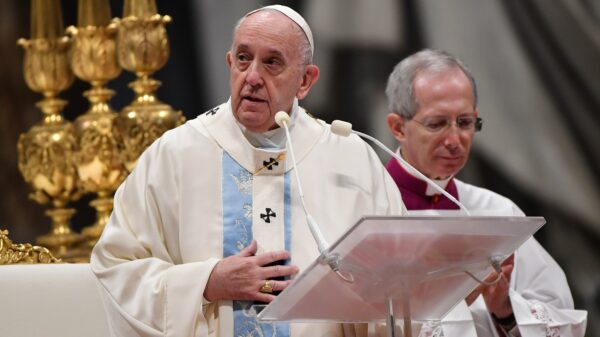
As outcome of the investigation, Pope Francis dismissed Father Munyeshyaka from clerical duties. The priest, who had lived in France for nearly three decades, was notified of Pope Francis’s decision by Bishop of Evreux, Christian Nourrichard, on May 2, 2023.
In a letter to Father Munyeshyaka, Nourrichard said, “By Decree dated March 23, 2023, received last week, the Sovereign Pontiff Pope Francis, by his supreme and final decision which is not subject to any appeal, has dismissed in pœnam from the clerical state Father Wenceslas Munyeshyaka, incardinated in the Archdiocese of Kigali (Rwanda) and currently residing in the Diocese of Evreux.”
“Father Wenceslas Munyeshyaka is exempt from all obligations arising from sacred ordination, automatically loses all the rights specific to the clerical state, is excluded from the exercise of the sacred ministry and cannot function as lector or acolyte, nor to drink communion nowhere.
“He should avoid places where his previous status is known.”
Looks so much like a movie, but this is real.
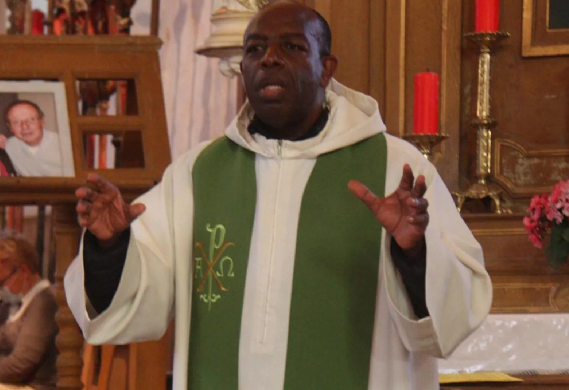
 Join Daily Trust WhatsApp Community For Quick Access To News and Happenings Around You.
Join Daily Trust WhatsApp Community For Quick Access To News and Happenings Around You.


